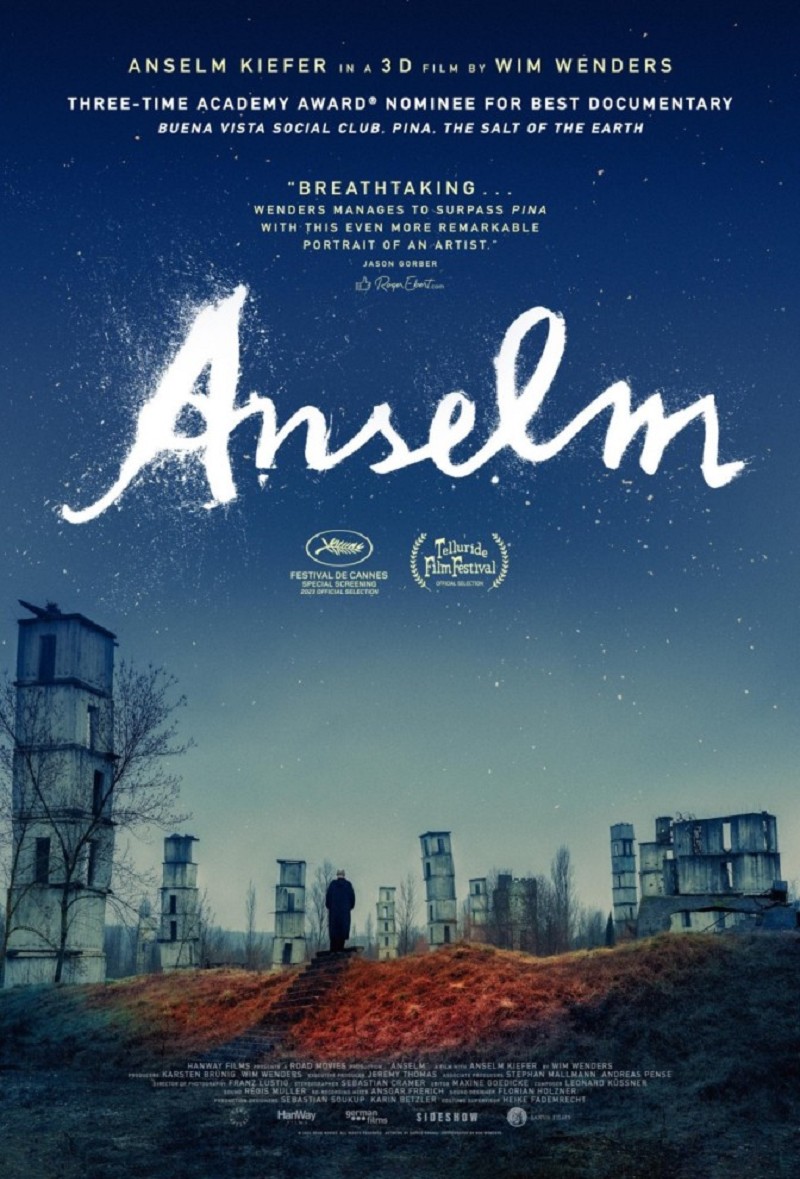
Watch trailer
An experience like no other, renowned director Wim Wenders creates an expressive portrait of one of the world’s most prominent and important contemporary artists, Anselm Kiefer.
Anselm treats the audience to an exclusive, front row seat to watch the artist at work. Mining cultural texts and Kiefer’s personal history, the film contextualises his life’s work, while taking the audience on an experiential voyage of discovery. Textual pleasures become vivid before our eyes, as we watch Kiefer roam through his enormous warehouse filled with his art, and the objects he uses to make it. We watch as he creates his monumental artworks using lead, concrete, glass, textiles, plant material, books and fire.
For over two years, Wenders traced Kiefer’s path from his native Germany to his current home in France, connecting the stages of his life to the essential places of his phenomenal career that spans more than five decades. The result is a profound study of the artist’s work, which explores human existence and the cyclical nature of history, inspired by literature, poetry, philosophy, science, mythology and religion.
The Garden Cinema View:
A leading light of the New German Cinema movement of the 1970s, Wenders and the likes of Werner Herzog and Rainer Werner Fassbinder were following the earlier Oberhausen Manifesto, which generated the slogan ‘Papas Kino ist tot’ [Papa's cinema is dead]. It should not be surprising then that Wenders’ two mononymous studies of German artists, Pina, and now Anselm, have focused on figures who, respectively, deal with the patriarchal violence of personal relationships, and interrogate the myths of Fatherland that were exploited by the Nazis.
Provocative as some of Anselm Keifer’s early statements may have been, the notion of his work as purporting to a kind of neo-fascism seems ludicrous through the prism of Wenders’ documentary. Here, in startling settings and shot compositions, these monolithic canvases and sculptures throb with the horrors of the 20th Century, particularly those conducted by Germany. There is a (quite masculine) robustness to the artist and his work, particularly in striking sequences of Keifer attacking paintings with industrial machinery, but this is balanced by some of the lighter moments (his preferred method on transportation around his enormous studio seems to be bicycle), in particular the surreal, calm, and disturbing, placings of sculptures amongst quite beautiful landscapes.